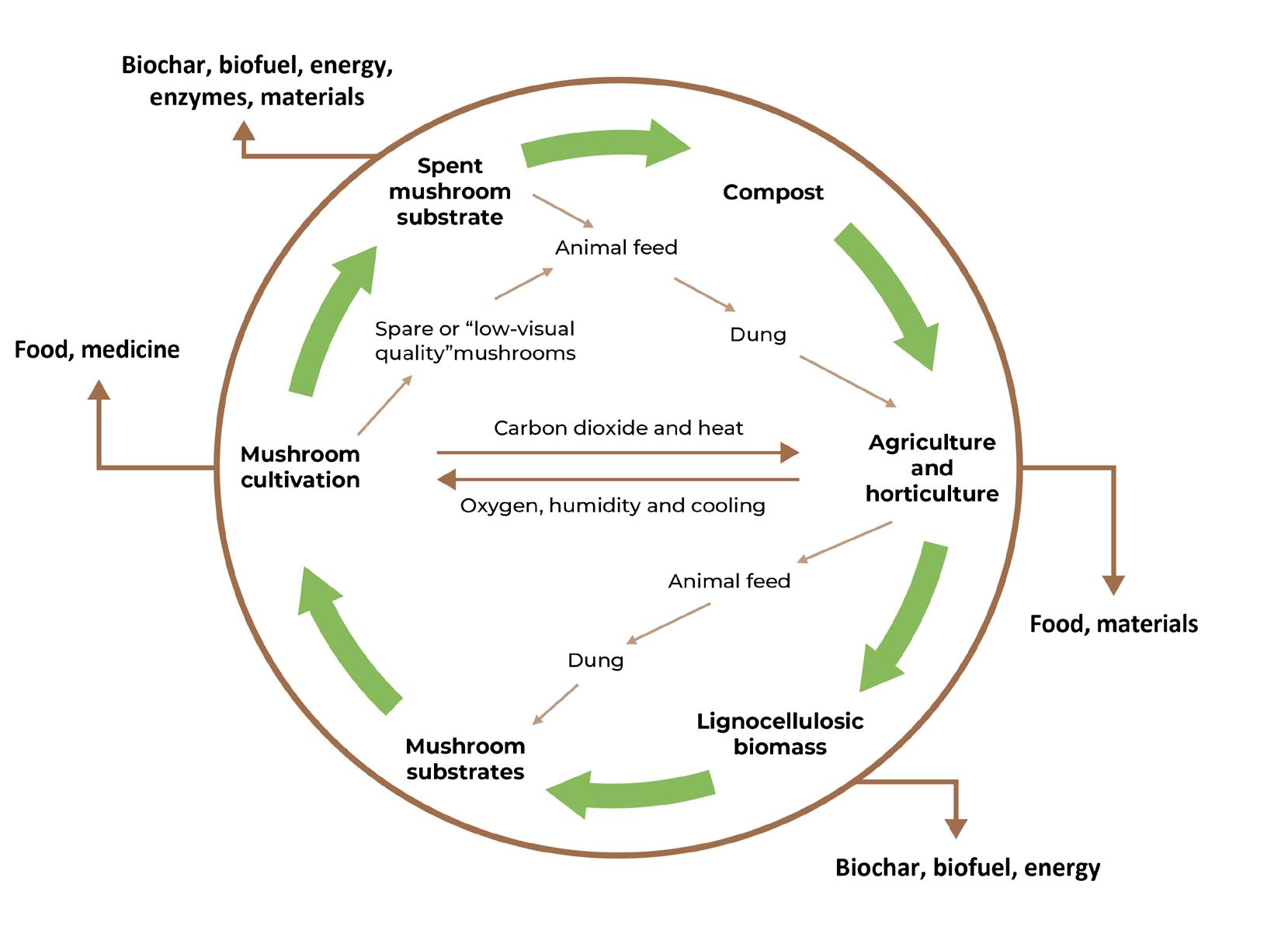
2 minute read
Global Uses
As our world continues to increase in population and our collective behavior continues to harm our planet, we face three main issues: the shortage of real food, an increase in health issues and chronic diseases, and environmental deterioration.
Fascinatingly, mushrooms can address all three concerns.
Advertisement
It is important to remember that mushrooms, like all other fungi, lack chlorophyll. As such, they can be referred to as non-green organisms since they cannot convert solar energy to organic matter like plants do. They can, however, convert massive amounts of lignocellulosic waste produced from agriculture and forestry activities into dietary food, medicine, animal feed, and crop fertilizer. Further, they can help clean and restore soil that is damaged from chemical agricultural methods.
ENVIRONMENTAL SUSTAINABILITY AND REGENERATION
Mushroom cultivation is a powerful tool to restore, replenish, and remediate our planet’s over-burdened ecosphere. Because cultivation can take place on organic waste, this presents an exciting opportunity to biologically recycle the
Medicinal Mushrooms in the 21st Century 18
high amounts of accumulated natural by-products of the agro-food industry, which contribute to environmental pollution through their burning and also take up precious land space that could otherwise be used to grow crops.
Natural byproducts of the agro-food industry include dead wood and leaves, which hold several nutrients that cannot be accessed unless broken down and digested. Fungi are the only organisms in the world that can decompose such organic waste products. The process is actually done by mycelia, the vegetative part of fungi, which resembles white threads that grow from the dead wood and leaves.

These mycelia release powerful extracellular enzymes and acids that can break down cellulose and lignin, the two key components of plant fiber. In the natural ecosystem, once the process of decomposition starts, organisms from other kingdoms as well as nutrients present in the organic waste can now participate in and speed up the degradation process. The organic waste—now bio-recycled to soil through the process of mushroom cultivation—can be transformed into nutritious fertilizer or feed, useful for growing crops, feeding livestock, and for remediating soil and water damaged through chemical agricultural practices. At the same time, the mushrooms harvested through this process can be used for both nutritional (protein-enriched) and medicinal purposes, as previously described.
Mushroom cultivation in the circular economy, Appl Microbiol Biotechnol. 2018; 102(18): 7795–7803.
Use of SMS in a circular economy Medicinal Mushrooms in the 21st Century 19









